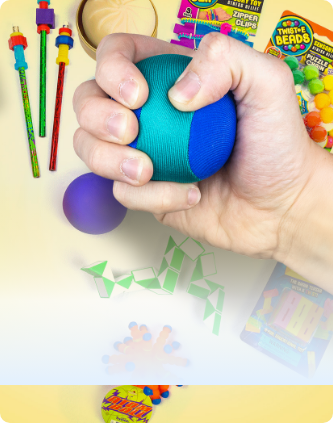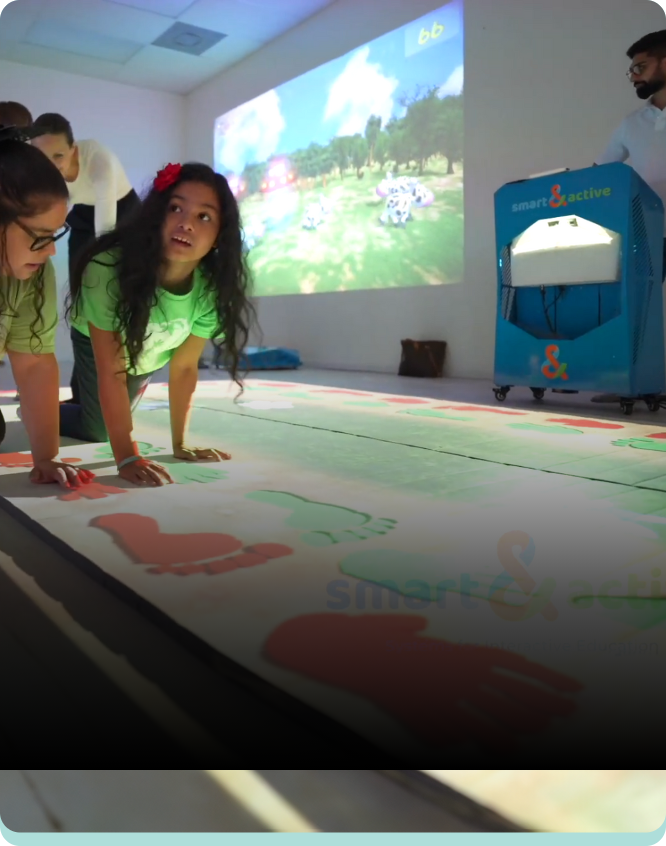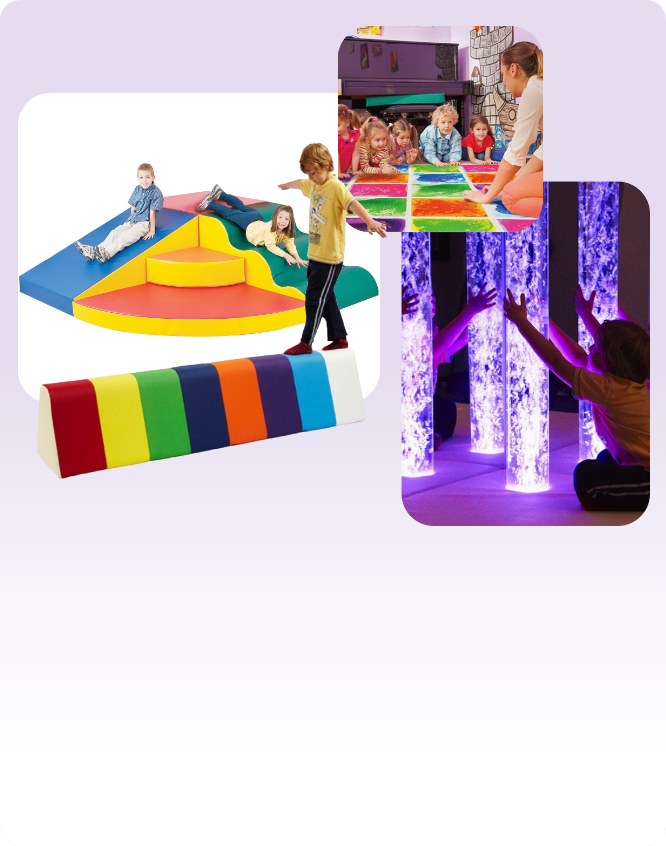38 Tips for a Meltdown Free Holiday
Posted by Bonnie Arnwine on Nov 6th 2020

The holidays are a fun time to visit with friends and family. Special decorations and traditions make it a festive time for everyone. Unfortunately, the holidays can also present challenges for individuals on the autism spectrum especially this year when you throw in the challenges of Covid19. However, with a little preparation, you can create a supportive environment that everyone will enjoy.
Remember Change is Hard
Most individuals on the spectrum enjoy routines. This year all of us have experienced extra stress due to the changes in our routines. Although it can be challenging, if possible, try to maintain your usual routine during the holiday season. Maintaining consistent mealtimes and bedtimes can alleviate stress and be very comforting.
At a conference, I heard the story of a young man at a group home that kept attacking the Christmas tree. Everyone was very upset with his behavior. When the behaviorist arrived, he learned that the staff had moved one of the living room chairs to make room for the tree. When the behaviorist asked the staff to put the chair back, they were reluctant because they thought the room wouldn’t “look good”. As soon as they put the chair back, the young man ran to the chair and never attacked the tree again. The staff had inadvertently disrupted his home and his routine. With this story in mind, remember:
- No decoration is worth disrupting a comforting routine.
- Ask yourself whose home is it? Decorations are for occupants to enjoy. If a decoration is disruptive it isn’t serving its true purpose.
- If possible, allow your family member to pick some of the decorations and put them up. Being a part of the process allows them to prepare for the holidays and “own” the new look.
- Pick out a decoration of the day. Add the decorations gradually as a way to prepare for the holiday. If this works particularly well, then you may want to slowly take down decorations to help your child transition out of holiday mode as the holidays pass.
- Remember too much sensory stimulation can make it much easier for your family member to experience over-stimulation and stress. Years ago, a friend of mine bought a set of tree lights that had several different blinking modes. She quickly found out that the best mode was the one with no flickering or dancing lights. Her son just needed them on or off.
As much as possible try to prepare your family member for any changes that will come with the holidays.
- Remember when introducing change to use positive language. For example you could say, "we are going to Grandma's house for Christmas dinner. It will be fun to see Grandma and eat Christmas cookies." As much as possible try to avoid inadvertently priming for failure. For example, "we are going to Grandma's for Christmas dinner I know it will be different and stressful, but try to have fun."
- Consider writing a social story that explains the special day. You can learn how to write a simple social story here.
- Creating a visual schedule for special days. This can be as simple as writing a list of activities and marking them off as you complete them. You can print off simple images for your schedule as well. The internet is full of free pictures you can download.
- Consider using a calendar to mark down the days before the vacation or family event.
Avoid the Meltdown
The holidays can easily become overwhelming for any of us. A meltdown on a special day is sad for the family and for the child, so be sensitive to signs of stress and create calming opportunities to avoid a meltdown.
- If possible, talk to your family member ahead of time while they are relaxed. Ask them if they have any ideas on how you can help them if they get stressed.
- When traveling or visiting, keep with you a favorite calming item, like a vibrating pillow, fidget, or stress ball.
- Wear noise reduction ear muffs to minimize unexpected noises.
- As soon as you see signs of stress, give your family member a break. Small frequent breaks are much better than pushing someone a little bit longer.
- Have a calming plan and communicate it with your family members.
A Calm Safe Spot
Make sure to have a calming area your family member can go to when they need a break. If you are going to visit family, talk to them about creating a calming area for your child before you arrive. Here are a few ideas:
- Designate a room or quiet corner of a room as a safe spot. Provide soft pillows or stuffed animals to sit and snuggle with. Provide different textures to touch - this can be as simple as a regular pillowcase and a flannel pillowcase.
- Make sure to bring familiar comforting items like a favorite pillow, blanket, or a couple of toys to leave in the safe area.
- Provide some soft lighting if possible.
- Make sure the area is quiet or provide some headphones or soft music.
- You can also put a sheet over a table and create a quick safe fort if your child would enjoy it.
Presents - Presents – Presents!
Presents can be a highly anticipated part of a holiday. They bring a light of excitement and stimulation. Unfortunately, they can also cause over-stimulation and stress. So, preparation for presents is important.
- My son always wanted to know which presents were his. So, I let him pick out his wrapping paper. I wrapped all his presents with the paper. On the big day, he didn’t worry about which presents were his because he could easily identify them.
- Help your child understand present protocol with a social story. You can see some free gift themed social stories here:
- If possible identify which present will be the most preferred gift. Save this gift for last or give it to your child when you BEGIN to see them becoming agitated. Allow them to open this gift and play with it while everyone continues to open their gifts. Remember the goal is family time, not completing the task of opening the gifts.
- If your family member wants a specific gift and you will not be able to provide it, make sure you tell them before the big day.
- If your family member is hyper-focused on a specific gift and needs to talk about it or ask questions about it make some rules. The Autism Society of America has a great suggestion, “give them five poker chips. They are allowed to exchange one chip for five minutes of talking about the desired gift. Also, if you have no intention of purchasing a specific item, it serves no purpose to tell them that maybe they will get the gift. This will only lead to problems in the future. Always choose to be direct and specific about your intentions”.
But I Want Your Stuff…
What is your plan if your family member wants somebody else’s gift? Here are a few ideas to help with this situation:
- Make sure your family member understands the concept of a gift. You can share this social story.
- Talk to visiting family members ahead of time and prepare them for this possibility. This is important for younger children.
- If possible, create a reward for not taking gifts. Allow your child to earn a token each time they congratulate someone for a gift, or high five them instead of taking the gift. Make sure to give lots of praise and have a reward the child will really enjoy for a job well done.
Guest Preparation
Family members often come together for the holidays and they really want to spend quality time with your child.
- Prepare your family member to meet new people by showing them a picture or use social media. Social media can be a powerful tool that can build family connections. Become Facebook friends or follow family members on Instagram.
- Sit down and take a minute to think of three tips that will help your friends and family to understand how best to interact with your child and communicate this to them before the visit.
- Prepare for a positive introduction. Does your child dislike being hugged? Then how about greeting with a thumbs up or a high five? Let your family members know what works best for a positive start to your visit.
- Explain what overstimulation looks like and when they should come and get you.
- Explain the purpose of your quiet area and what to do if your child needs to go there.
- If possible, prepare a simple activity your family members can do with your child. Grandmas and grandpas want to connect with their grandchildren. Perhaps they can take turns putting pieces in a puzzle, or play with play-doh together, or they can count the number of jumps your child does on the trampoline. If possible, put away a favorite toy or activity for several days before the family member arrives. Allow them to get it out of the closet and present it to your child. (Note: for this to work there can be no negative feelings or discipline surrounding the item. You may want to put up the toy while your child is asleep.)
The Big Meal
So much of the holidays surround food. Big family meals where everyone comes together to eat and enjoy each other's company. A lot of time and thought goes into the preparation of the food. While some make it all about the food, the real goal is for everyone to get together and visit. For the person with autism, big family meals can be a real challenge. Lots of people mean lots of noise. New foods that they haven’t tried before isn’t fun - it's challenging. Here are a few things you can do to make the situation easier.
- Let your family member eat before the meal. There is nothing worse than being genuinely hungry but unable to eat because the environment is too stimulating, or the food is too different. Let your family member eat beforehand and then save them a spot at the table to visit and maybe have a roll or try something if they want too.
- Communicate with your family before the meal. Tell them that your child will eat ahead of time, or that you will prepare their plate. I have told my family members to not try to make my son eat a food he does not want or to put any food on his plate.
- If you want your family member to try new foods, try them at home in a familiar environment first. Do you want them to try grandma’s pumpkin pie? Ask grandma for the recipe and introduce it to your family member a few times before the big meal.
- Bring a dish to share that you know your family member will enjoy.
- If you know it will be loud, bring headphones or earplugs and let your child wear them at the table.
Bonnie Arnwine is the president of National Autism Resources, author of Starting Sensory Integration Therapy, and the mother of an amazing young man on the autism spectrum.







